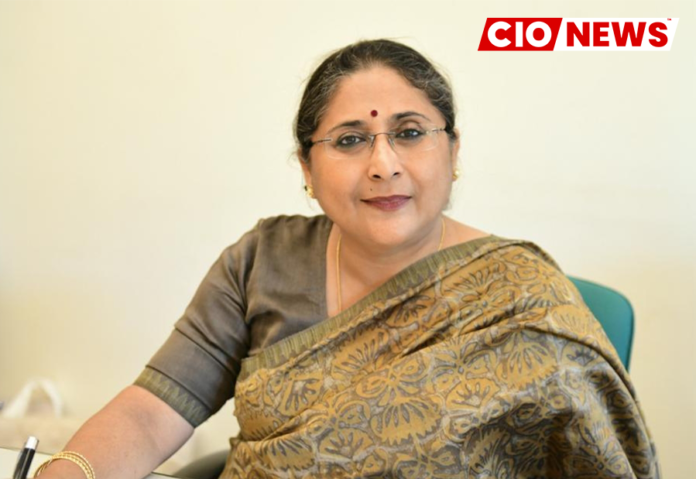The NEP 2020 (National Education Policy) also recognizes the need for digital education to prepare students for the challenges of the twenty-first century.
This is an exclusive article series conducted by Santosh Vaswani, Journalist & Editor at CIO News with Mrs. Damayanti Bhattacharya, Principal, Jasudben ML School and Bloomingdales Pre-Primary School.
Following the pandemic, everything from education to employment has changed online, to the point that, according to the World Economic Forum, by 2025, more than half of the global workforce will require reskilling and upskilling, emphasizing the importance of encouraging digital citizenship from a young age.
In the era of early exposure to gadgets, whether to watch rhymes, stories, or videos, teaching responsible online behaviour is important. As the digital landscape advances, so do its difficulties, emphasizing the need to prepare students with key skills. Recognizing this, NEP 2020 integrates digital education and literacy into school curricula to help students succeed while making the best use of technology.
At its core, building responsible behaviour and promoting digital citizenship emphasizes the importance of understanding the rights, responsibilities, and opportunities that come with being online. According to a poll, 61% of urban Indian parents report that their children aged 9 to 17 are addicted to videos, online gaming, OTT, and social media. To tackle this, educators can help teach a range of principles, such as ethical decision-making, online safety, and digital literacy. Small steps like the art of balancing offline and online activities and a guide to protect them from online threats like cyberbullying and identity theft can enable kids to make informed decisions, engage critically with digital information, and contribute constructively to online discourses.
The NEP 2020 (National Education Policy) also recognizes the need for digital education to prepare students for the challenges of the twenty-first century. It proposes technology integration in the teaching-learning process and the establishment of the National Educational Technology Forum (NETF) to facilitate collaboration and knowledge-sharing among stakeholders in education and Ed-Tech companies.
Implementation of NEP allows for the development of digital literacy programs and promotes access to online resources. It requires educating teachers to use digital tools and technology in their teaching practices so students will have more interactive and dynamic learning experiences. This shift towards digital pedagogy has immense potential to improve education delivery by making it more interactive, personalized, and accessible to all students.
However, as the push for digital advancement continues, concerns have arisen about students’ psychological well-being. Increased digital dependency has led to sentiments of fear, alienation, and inequity, which are escalated by online biases and cyberbullying. To address these challenges, students, parents, and educators need to recognize the responsibilities that come with digital citizenship.
It thus necessitates a societal and cultural shift toward digital citizenship by responsibly leveraging technology. By comprehending digital literacy and nurturing healthy online conduct, we may set the path for a future in which technology is utilized to collaborate, connect, and contribute actively, making the digital world a safer and more inclusive place for all.
About Damayanti Bhattacharya
Principal Mrs. Damayanti Bhattacharya is a veteran educator with over 30 years of experience in the field of education. Damayanti Bhattacharya, a qualified Master of English Literature from Calcutta University, also holds a B. Ed. degree and is an AP-certified teacher as well as an IGCSE-certified teacher for Global Perspectives.
Also read: Women in the technology industry is constantly increasing, says Rajita Bhatnagar
Do Follow: CIO News LinkedIn Account | CIO News Facebook | CIO News Youtube | CIO News Twitter
About us:
CIO News, a proprietary of Mercadeo, produces award-winning content and resources for IT leaders across any industry through print articles and recorded video interviews on topics in the technology sector such as Digital Transformation, Artificial Intelligence (AI), Machine Learning (ML), Cloud, Robotics, Cyber-security, Data, Analytics, SOC, SASE, among other technology topics.






